- Home
- Diana Palmer
Marrying My Cowboy Page 11
Marrying My Cowboy Read online
Page 11
“Why did he call Mr. Matthews ‘Sarge’?” she asked.
“That’s a long story,” he replied. “I’ll tell it to you, on the way to see the calves.”
Chapter Seven
“Isn’t Mr. Parker the man you said you had to keep away from people because he cussed so much?” she asked.
“He is.”
“But he didn’t cuss a single time,” she pointed out.
“Must have a fever or something,” he teased.
“Really?” She just laughed. “Were he and Mr. Matthews both in Iraq?”
“They were. Butch was his sergeant. They got into a firefight with insurgents and Butch was badly wounded. Parker dodged through a hail of gunfire to get to him, threw him over his shoulder, and dodged back behind our own lines. He was hit twice before he got there.”
“A brave man,” she said solemnly.
“Very brave. Butch lost his arm, but kept his life. Later on, he returned the favor by taking out an insurgent who’d sneaked into camp and had an automatic trained on Parker. Butch shot the man and saved Parker’s life.”
“I begin to understand,” she said.
He nodded. “Combat makes fast friends of strangers.”
She searched his hard face. “You were over there, too,” she recalled.
He nodded. “I was in a different outfit than Butch and Parker were in, but in the same general vicinity.”
She recalled that he never talked about it, so she didn’t push.
He noticed that. He loved it about her. Most women would have tried to pry it out of him, become insistent. She didn’t. She just accepted people the way they were.
He did wonder at Parker. The man was notorious for his blistering and politically incorrect vocabulary, yet he’d said not one bad word in Cassie’s company. He was going to ask about that later. It was a real mystery.
Meanwhile, he took Cassie to the barn and walked her down the wide, paved aisle to the stalls where three calves were kept.
“These little ones have been sick,” he told her. “So we brought them in here.” He didn’t add that taking her out in the pasture to see the calves could get dangerous. He didn’t run polled, or dehorned, cattle, and mother cows could be dangerous if they perceived a threat from human intruders. He’d seen one cow actually attack one of his cowboys for petting a calf on the head. That particular cow had been culled. It wasn’t wise to keep an aggressive animal around his cowboys. But sometimes you didn’t know a cow was aggressive until you found it out the hard way. He wasn’t risking Cassie.
Polled cattle were less dangerous around cowboys and equipment, but in an area with predators, like JL’s ranch, it was more profitable to leave the horns on, so that the cattle could defend themselves, especially when big snows made it difficult for workers to get to them.
“They’re so pretty,” Cassie remarked, leaning on the fence to smile over it at the calves. “Black as coal.”
He nodded.
“Will they get better?”
He laughed. “Sure, they will. Then they’ll go back to the herd with their mothers.”
“I read that some mothers reject their calves. Then what do you do?”
“They become bottle calves,” he said simply. “We bring them into the barn and keep them here until they’re weaned. We always have a few of them.”
“That’s sad.”
“That’s life,” he replied easily. “Sometimes mothers don’t know what to do with their calves, especially first-time mothers. They walk away and can’t find them again, or they just walk away, period. We check the herds several times a day during calving, so we’ll find them if they’re by themselves. Usually. Sometimes we have problems, like old Two Toes raiding our pastures.”
“I like your Mr. Matthews,” she said. “He’s nice.”
He chuckled. He liked it, the way she described his friend. He’d found over the years that women who thought men were nice didn’t feel much attraction to them, except as substitute brothers. It pleased him that Matthews hadn’t made an impression. Not that he was interested in her that way. Of course he wasn’t!
On the other hand, Parker had been very interested in her. He’d never seen the man so animated.
“Mr. Parker lifted that whole cage into the truck by himself,” she added worriedly. “I hope he didn’t hurt himself. I imagine Two Toes is very heavy. He’s a big wolf.”
“Parker frequently amazes us,” he replied. “We don’t know a lot about his background. He never speaks of it. We only know about Iraq because Matthews was in his unit.”
“Mr. Parker looks sort of different,” she replied.
He laughed. “He’s part Crow.”
She nodded. “Yes. One of Custer’s scouts was part Lakota; Mitch Bouyer, who died with him at the Little Bighorn. His best friend was Thomas Leforge, who wrote a book entitled Memoirs of a White Crow Indian. He lived with the Crow people. It was a fascinating book!”
He knew his jaw had dropped.
She glanced at him. She laughed. “I love that period of history,” she explained. “I’ve read everything I could find on the Battle of the Little Bighorn, including eyewitness accounts by the Native Americans who fought there. Isn’t it amazing,” she added, “that people of the period said there were no eyewitnesses left alive, when there were literally hundreds of Native Americans of many tribes who fought in the battle?”
“I know what you mean,” he said. “It was a particularly sad period in our history.”
She nodded. “It’s painful to look too deeply into those fights. But I had a history professor who told me that we should never judge the past by the morality of the present. You have to judge by the morality of the time period. That’s never easy.”
“We learn as we grow,” he agreed. “Our time period isn’t perfect, but we’re a hell of a lot better than we were a century ago.”
She smiled. “I think that, too.”
“I always loved history,” he remarked. “I studied it in the military. Dad wanted me to go to law school, but I needed business courses to keep the companies operating in the black. I majored in business, minored in economics and marketing.”
Cassie had majored in history, but she wasn’t going to mention it. He might wonder why a woman who’d gone to college was waiting tables. “Dad said you deal more in oil than you do in cattle,” she said.
“That’s true. I inherited the cattle. But I made a fortune in oil by speculating and taking chances,” he replied, chuckling.
“I’ve never taken a chance in my life,” she murmured. Actually, she had—coming out west incognito with her dad.
“I never used to. Then I went into the Army.” He sighed and shook his head. “My dad and I fought it out, because he wanted me to go to college first. I wanted experience.” He glanced at her. “I got my way. Wished I hadn’t, too. I’d heard all these stories about combat, about how noble it was.” He laughed. It had a hollow sound. “I had a buddy, Rick. We went through basic training together and ended up in the same company. We both came from rural backgrounds and we pretty much agreed on life and politics, so we spent our liberties together.” His eyes had a faraway look as he stared over the fence at the little calves, as if he wasn’t really seeing them. “We shipped out to Iraq. We were slated for an incursion into enemy territory, to take care of some insurgents who were standing off and taking potshots at us.” He drew in a long breath. “It wasn’t until we closed on them that I noticed one man was drawing back to throw something. Before I could say a word, Rick went up in the air, as if he’d been tossed by a giant hand. He died instantly.”
“Oh, my gosh,” she said softly.
“The insurgents moved up behind their grenade-tossing front man. We had to call in reinforcements before we could recover our casualties.” He winced. “There wasn’t a lot of Rick left. . . .”
She slid her hand over his where it rested on the gate. His fingers curled around it. She could feel the tension in him. “So that was my in
troduction to the ‘noble’ art of war. There’s nothing noble about it. There’s fear and terror and grief and blood.” He smoothed his hand over hers. “I took a round in the shoulder, fortunately not a fatal one, and got sent home because I was so close to being discharged. So Dad finally got his way after almost four years. I did go to college, after all.”
She laughed softly. “I’m sure your dad was happy about that.”
“Until I fought overseas, I wasn’t sure I wanted to keep the ranch,” he said, surprising her. “But when I came home, and settled back in, the very peace of it was comforting. Animals and people depending on me, needing me.” He shrugged. “It was a new concept. I got used to it.”
“I used to take care of Mama when she was sick,” she said. “She never asked me to. She was always trying to convince me that she could take care of herself, even when she couldn’t. She was a sweet, kind person. It wasn’t right, what happened to her.”
“I still think you have a potential lawsuit there,” he remarked.
“It’s like my father said, we aren’t that sort of people,” she said, heading off trouble. There was no way she could bring a lawsuit without going back east and blowing her cover. It would bring the weight of the media right back down on them all over again.
He looked at her with affection. “You feel things deeply, don’t you?”
She nodded. “My dad always said I was too sensitive to live in the real world. I take things hard.”
“Like ignorant men making fun of you for being overly dramatic, when you were gasping for breath,” he said with a wry smile.
“Oh, I didn’t blame you,” she said, looking up into soft brown eyes. “I’m sure it looked like I was overreacting.”
“I should have known better,” he replied. He brushed back her disheveled red-gold hair with a gloved hand. “You hold things inside.”
“I never wanted to worry Mama, so I had to. She was even more sensitive than I am.” She sighed. “I miss her.”
“You’ve still got your dad.”
“Yes. My biggest blessing.”
“He has a very cultured voice,” he said abruptly. “I don’t think I’ve ever heard one quite like it, except for radio announcers. I don’t guess he ever worked for a radio station?”
She laughed and tried to make it sound natural. “No. I’ve always thought he had the voice for it, too.”
“What did he do, before he came out here?”
“He was a businessman,” she said. “He worked for a corporation that marketed commodities.” Well, it had, she rationalized, it marketed entertainment.
“And here he is in Benton, Colorado, selling farm and ranch equipment,” he observed.
“It’s an honest living,” she told him. “At least he isn’t holding up convenience stores to swipe chicken burritos.” She recalled that last item from a movie she’d loved—Battleship—and she burst out laughing.
He looked down at her with howling amusement. “There was this movie . . .”
“Yes!” she laughed. “They ended up fighting aliens in a World War Two battleship, aided by the former crew!”
“It’s one of my favorites,” he confessed.
“Mine too, and nobody in my whole family was ever in the Navy. My people were Army all the way, through all the wars.”
He laughed. “My family was strictly Marines.”
“I won’t hold it against you,” she said with a wicked grin.
He sighed and shook his head. “I knew you’d be one of those, the first time I saw you,” he mused.
“One of those?”
“Madcap people,” he explained. “Outrageous and funny.”
“Thanks. I think.”
“Oh, it’s a compliment,” he said, turning back toward the aisle. “I tend to like outrageous people.”
“So do I,” she said, as she fell into step beside him. “Do you like superhero movies?”
“Love them.”
“How about cartoon movies?”
He stopped halfway down the aisle and turned to her. “Cartoon movies?”
“Moana,” she said. “Lilo and Stitch. How to Train Your Dragon. Despicable Me.”
“Oh, those.” He chuckled. “I don’t watch many of them. I did watch Moana. We had a guy from New Zealand who worked here when it came out, a Maori. He dragged us all into the theater to see it. He was right. It was spectacular. Besides,” he added, “it had The Rock.”
“The what?”
“The Rock,” he repeated. “Don’t tell me. You’ve never watched wrestling.”
“Dwayne Johnson!” she exclaimed. “That Rock!”
He grinned. “Yes. That Rock.”
“Isn’t he awesome?” she sighed. “He could stand on a stage and read the telephone directory, and I’d buy a ticket. He’s gorgeous.”
“Women do love him. Men admire him because he’s so accomplished. An athlete and an actor, a very unusual combination.”
“Dave Bautista’s in Guardians of the Galaxy,” she pointed out. “He was a wrestler, too, and he’s a terrific actor.”
“Nice, that we like the same ones,” he returned. “Although, we have to keep in mind that you haven’t climbed Mount Everest.”
“Oh, I always keep that in mind,” she agreed. “Do you have more calves?”
“Lots, but they’re out in the pastures and I don’t run polled cattle.”
She stopped and looked up at him with wide, curious blue eyes.
“They all have horns,” he explained.
“So?”
“So,” he said, taking her gently by the shoulders, “mama cows are very protective of their babies, and some of them can be aggressive. We don’t take chances our guests will get hurt.”
“I see.”
“But there’s still the bottle calves,” he added.
Her eyes lit up.
“Not today,” he said, smiling. “I have a business meeting in Dallas on Monday, and I have to get to the airport early in the morning, so I’ll have time to talk to some other investors over the weekend. How about next Saturday?”
“I’d love that,” she said, her feelings spilling out of her like foam out of a latte.
“I would, too,” he replied. He smiled. “I’ll pick you up about noon and Bessie can fix us lunch.”
She grimaced. “Saturday. I have to work!”
“Sunday,” he amended.
She nodded. “Sunday’s fine.”
“I never mentioned how good those rolls were that you made me,” he said. “Drum came in to ask a question, smelled the air, and promptly grabbed three and took them with him. They were delicious.”
“I’m glad you liked them,” she said, feeling warm inside.
“What would you like from Texas?” he asked.
“A longhorn?” she ventured.
He gave her a long-suffering look. “Something I can get on an airplane.”
“Peanuts?”
That took him a minute. He burst out laughing. “Hell. I’ll bring you something unexpected.”
“Okay,” she said, grinning up at him.
He was still laughing when he dropped her off at her home. He drove away feeling new, reborn. It was as if the past few months hadn’t even happened. He was already looking forward to the next weekend.
* * *
“Did you have fun?” her father asked over supper.
“Lots,” she replied. “They caught the wolf who’s been bringing down their calves.”
“Oh? Did they shoot it?”
“No. It’s an old wolf, almost blind. There’s a local wildlife rehabilitator who’s going to adopt it.”
“That’s nice. Not what I expected from ranchers, I have to confess,” he added.
“JL’s not your average rancher,” she said. “The rehabilitator only has one arm. He and this guy named Parker who works for JL were overseas in combat.”
“So was JL, I hear.”
She nodded. “He talked about it, just a little. He lost hi
s best friend to a grenade.”
“Damned shame, what young men and women have to go through when they join the military,” he replied. “Not that I didn’t try to join,” he added ruefully and with a smile. “I had a bad heart valve. I tried more than once, but they wouldn’t let me in.” He grimaced. “The valve’s still bad, and I’ve never had a minute’s trouble from it. Go figure.”
“Rules are rules.”
“So they say.”
“I’m going back over to the ranch for lunch next Sunday,” she told him. “I’ll make sure you’ve got something nice cooked before I go.”
His eyebrows lifted. “Getting serious?”
“Trying not to,” she said. “He isn’t ready to get involved again, and I’m not sure I should. We’ve still got the scandal hanging over us. JL would think I’d been deceptive because I didn’t level with him about why we’re out here. But I can’t risk telling him, in case he let it slip.”
“I can feel your pain. I’m the same. I’m afraid to open my mouth.”
“She’s getting away with it all,” she said angrily. “It’s not right.”
“I’ve got Jake working on things back in Manhattan,” he said unexpectedly.
“Your attorney?” she asked, surprised.
He nodded. “He’s asking questions. He thinks there may be a way to make her confess.”
“That would take a miracle,” she said.
“Don’t ever discount miracles,” he said affectionately. “Trudy Blaise has enemies. One of them used to be a television producer in Los Angeles. He got fired for harassment and she got his job.”
“Why does that sound so familiar?” she asked with biting sarcasm.
“And it may not be the only instance of malfeasance. People who cause problems to get ahead generally use the same scheme over and over, because it works. But it can be a deal breaker if it gets found out.”
“Oh, how I hope it gets found out!”
“Me too,” he agreed. “At least, there’s a little light at the end of the tunnel. All we have to do is be patient and wait for developments.”
“Patience is hard,” she said.
“I know. But we don’t have much choice.” He grimaced. “I’m so sorry that I didn’t see it coming. I’ll never stop blaming myself for what happened to your mother. If I’d just given in, at the very beginning . . . !”

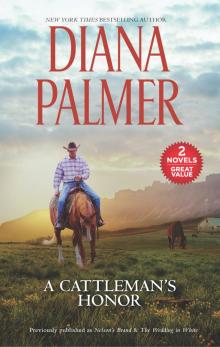 A Cattleman's Honor
A Cattleman's Honor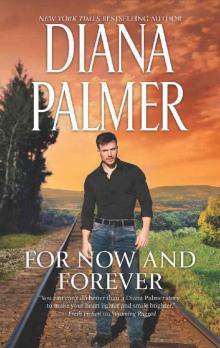 For Now and Forever
For Now and Forever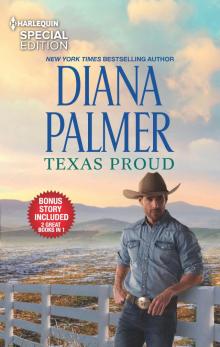 Texas Proud and Circle of Gold
Texas Proud and Circle of Gold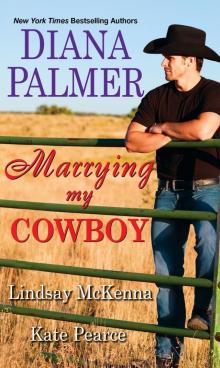 Marrying My Cowboy
Marrying My Cowboy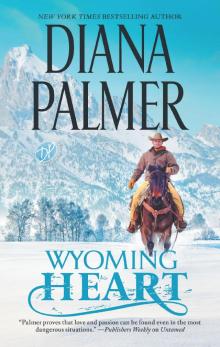 Wyoming Heart
Wyoming Heart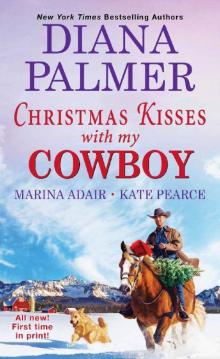 Christmas Kisses with My Cowboy
Christmas Kisses with My Cowboy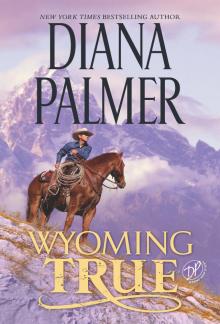 Wyoming True
Wyoming True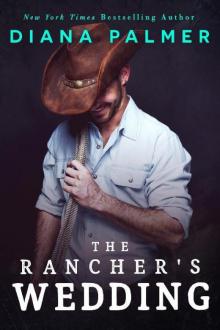 The Rancher's Wedding
The Rancher's Wedding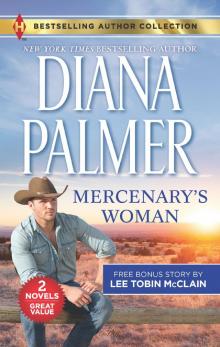 Mercenary's Woman ; Outlawed!
Mercenary's Woman ; Outlawed!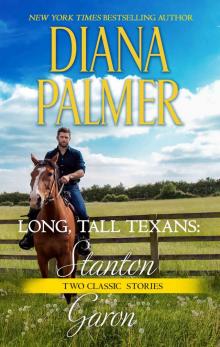 Long, Tall Texans: Stanton ; Long, Tall Texans: Garon
Long, Tall Texans: Stanton ; Long, Tall Texans: Garon Lawless
Lawless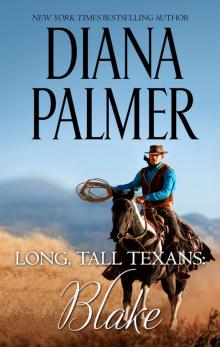 Blake
Blake Escapade
Escapade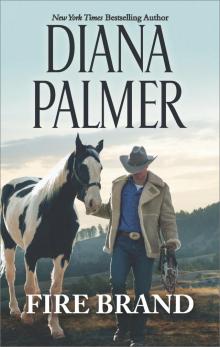 Fire Brand
Fire Brand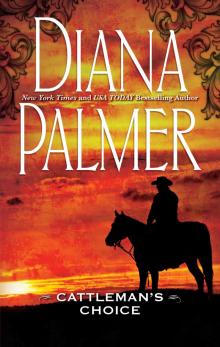 Cattleman's Choice
Cattleman's Choice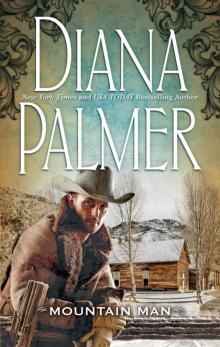 Mountain Man
Mountain Man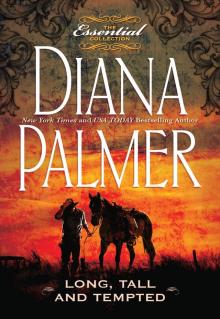 Long, Tall and Tempted
Long, Tall and Tempted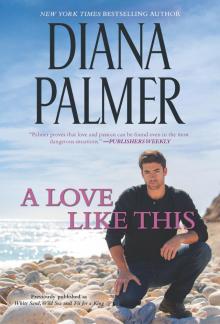 A Love Like This
A Love Like This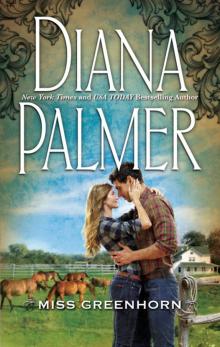 Miss Greenhorn
Miss Greenhorn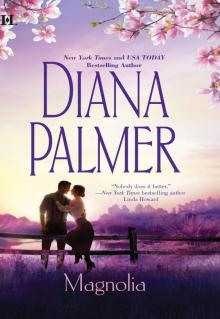 Magnolia
Magnolia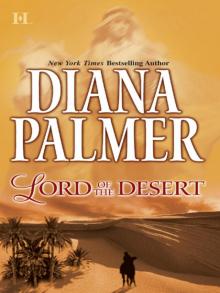 Lord of the Desert
Lord of the Desert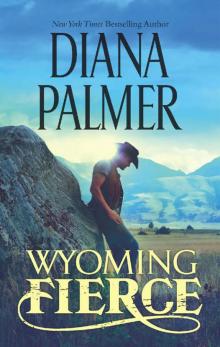 Wyoming Fierce
Wyoming Fierce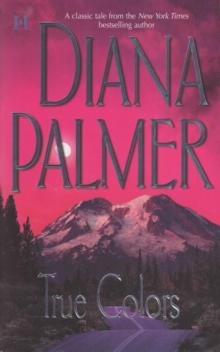 True Colors
True Colors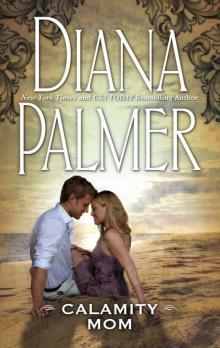 Calamity Mom
Calamity Mom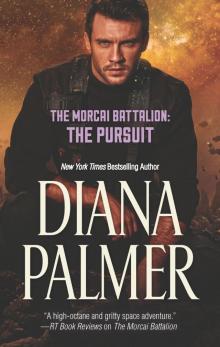 The Pursuit
The Pursuit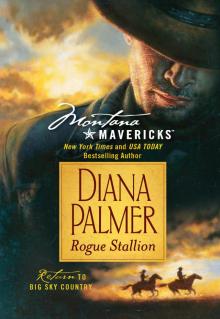 Rogue Stallion
Rogue Stallion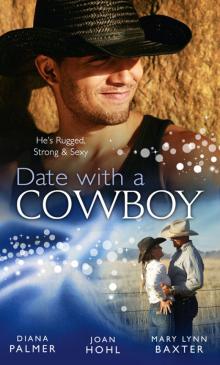 Date with a Cowboy
Date with a Cowboy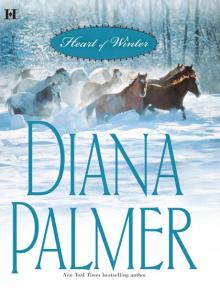 Heart of Winter
Heart of Winter Friends and Lovers
Friends and Lovers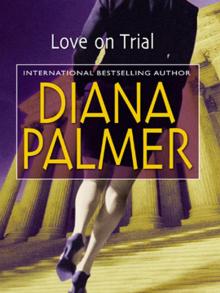 Love on Trial
Love on Trial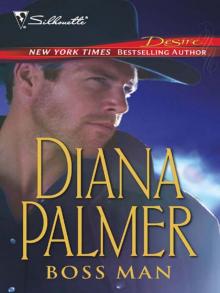 Boss Man
Boss Man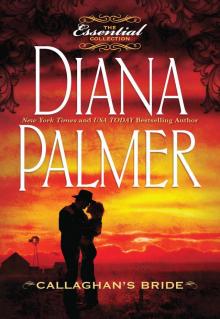 Callaghan's Bride
Callaghan's Bride Before Sunrise
Before Sunrise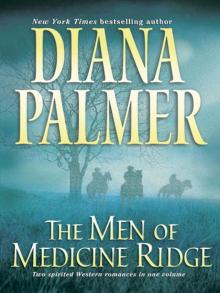 The Men of Medicine Ridge
The Men of Medicine Ridge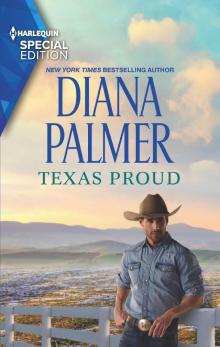 Texas Proud
Texas Proud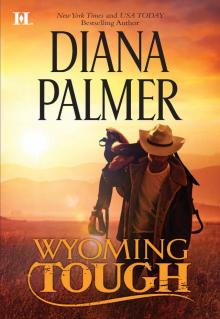 Wyoming Tough
Wyoming Tough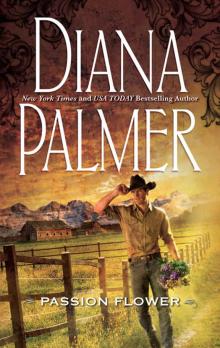 Passion Flower
Passion Flower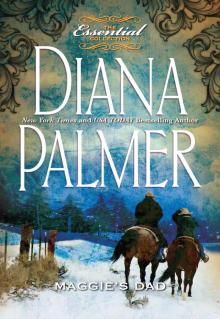 Maggie's Dad
Maggie's Dad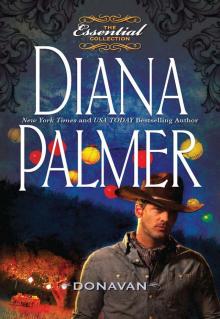 Donavan
Donavan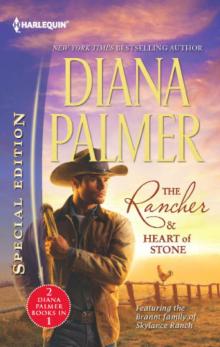 The Rancher & Heart of Stone
The Rancher & Heart of Stone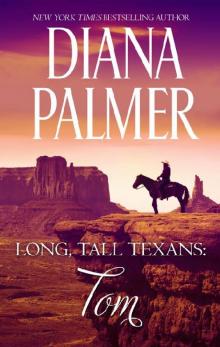 Long, Tall Texans: Tom
Long, Tall Texans: Tom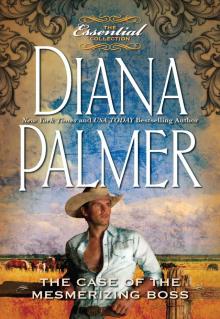 The Case of the Mesmerizing Boss
The Case of the Mesmerizing Boss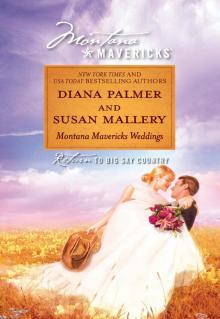 Montana Mavericks Weddings
Montana Mavericks Weddings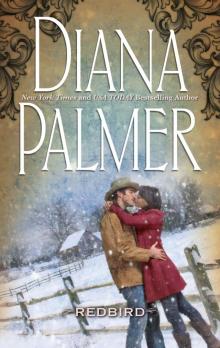 Redbird
Redbird Wyoming Strong
Wyoming Strong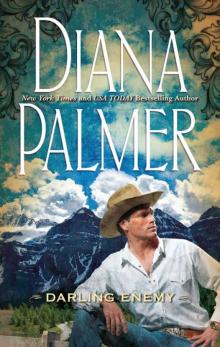 Darling Enemy
Darling Enemy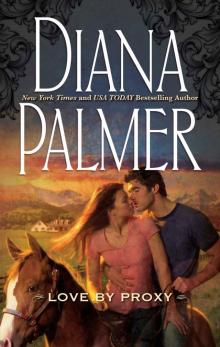 Love by Proxy
Love by Proxy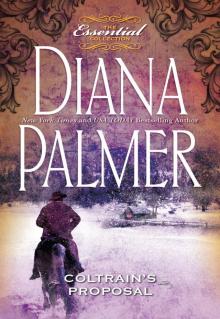 Coltrain's Proposal
Coltrain's Proposal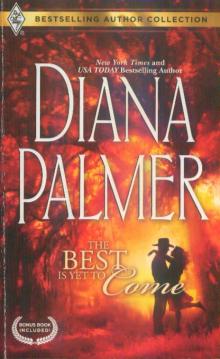 The Best Is Yet to Come & Maternity Bride
The Best Is Yet to Come & Maternity Bride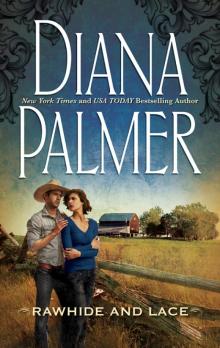 Rawhide and Lace
Rawhide and Lace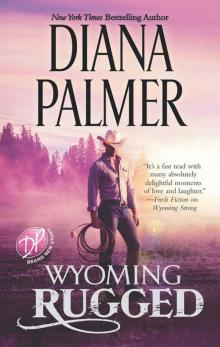 Wyoming Rugged
Wyoming Rugged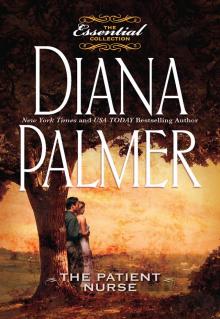 Patient Nurse
Patient Nurse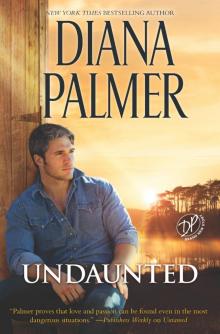 Undaunted
Undaunted Long Tall Texans Series Book 13 - Redbird
Long Tall Texans Series Book 13 - Redbird Outsider
Outsider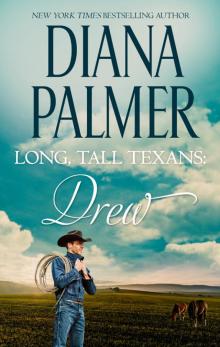 Long, Tall Texans: Drew
Long, Tall Texans: Drew Long, Tall Texans--Christopher
Long, Tall Texans--Christopher Merciless
Merciless A Match Made Under the Mistletoe
A Match Made Under the Mistletoe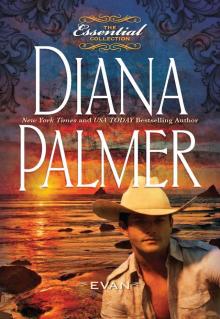 Evan
Evan Hunter
Hunter Now and Forever
Now and Forever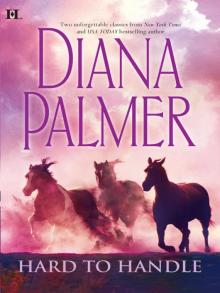 Hard to Handle
Hard to Handle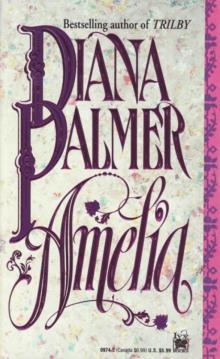 Amelia
Amelia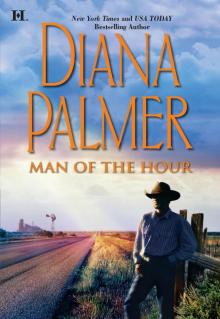 Man of the Hour
Man of the Hour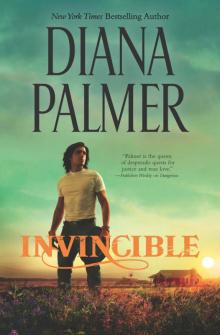 Invincible
Invincible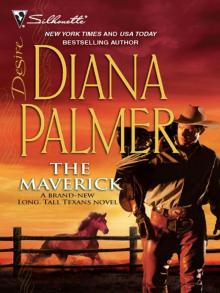 The Maverick
The Maverick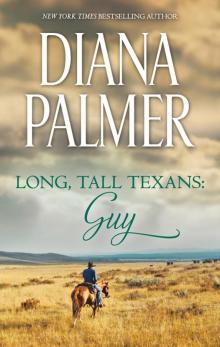 Long, Tall Texans--Guy
Long, Tall Texans--Guy Noelle
Noelle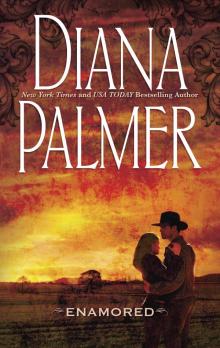 Enamored
Enamored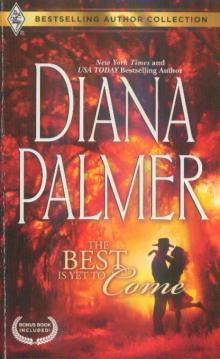 The Best Is Yet to Come
The Best Is Yet to Come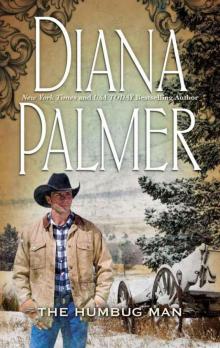 The Humbug Man
The Humbug Man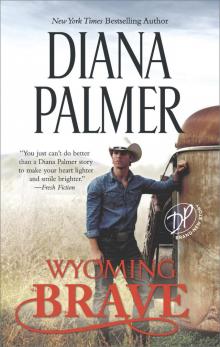 Wyoming Brave
Wyoming Brave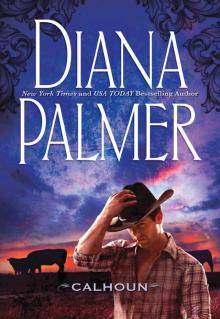 Calhoun
Calhoun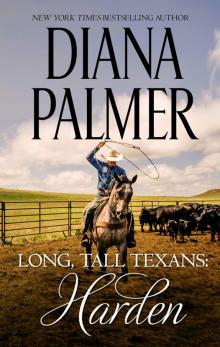 Long, Tall Texans--Harden
Long, Tall Texans--Harden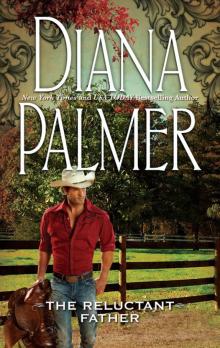 The Reluctant Father
The Reluctant Father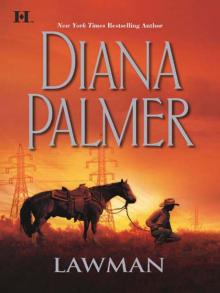 Lawman
Lawman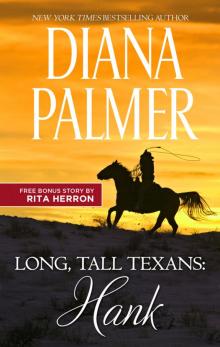 Long, Tall Texans: Hank & Ultimate Cowboy ; Long, Tall Texans: Hank
Long, Tall Texans: Hank & Ultimate Cowboy ; Long, Tall Texans: Hank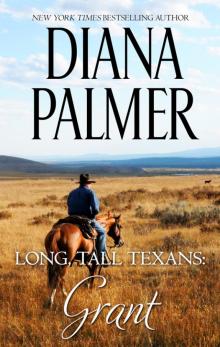 Grant
Grant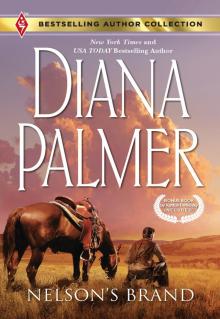 Nelson's Brand
Nelson's Brand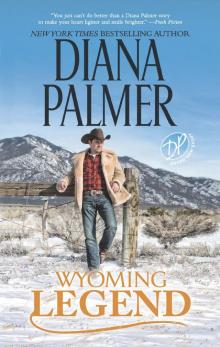 Wyoming Legend
Wyoming Legend Diamond Spur
Diamond Spur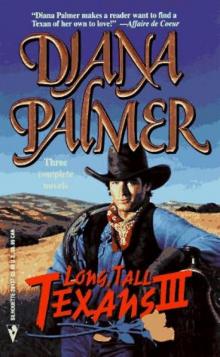 That Burke Man
That Burke Man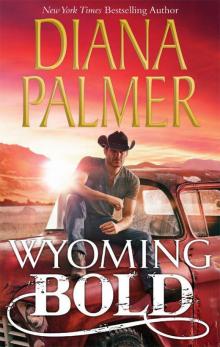 Wyoming Bold (Mills & Boon M&B)
Wyoming Bold (Mills & Boon M&B) Heartless
Heartless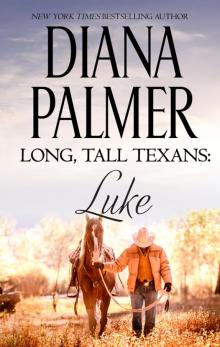 Long, Tall Texans--Luke
Long, Tall Texans--Luke To Have and to Hold
To Have and to Hold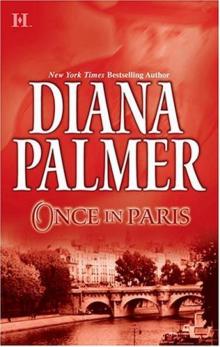 Once in Paris
Once in Paris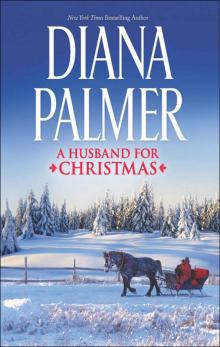 A Husband for Christmas: Snow KissesLionhearted
A Husband for Christmas: Snow KissesLionhearted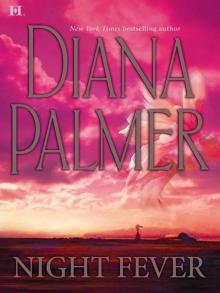 Night Fever
Night Fever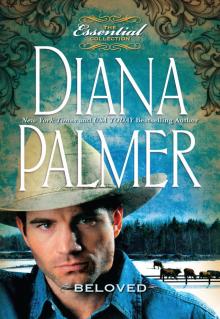 Beloved
Beloved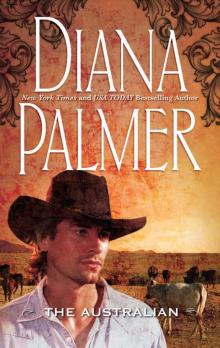 The Australian
The Australian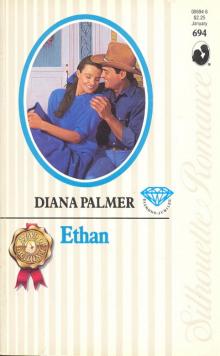 Ethan
Ethan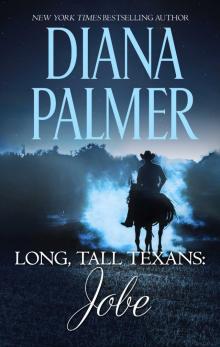 Long, Tall Texans: Jobe
Long, Tall Texans: Jobe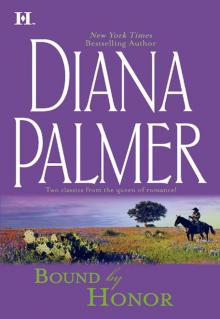 Bound by Honor: Mercenary's WomanThe Winter Soldier
Bound by Honor: Mercenary's WomanThe Winter Soldier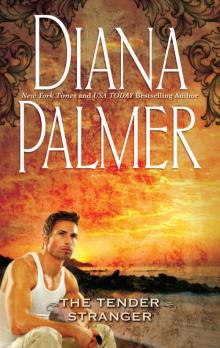 Tender Stranger
Tender Stranger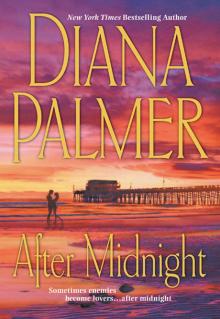 After Midnight
After Midnight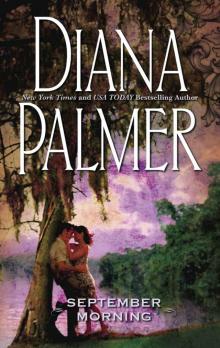 September Morning
September Morning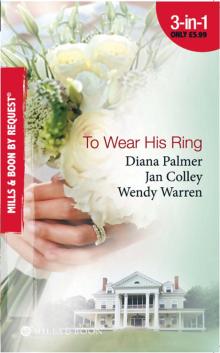 To Wear His Ring
To Wear His Ring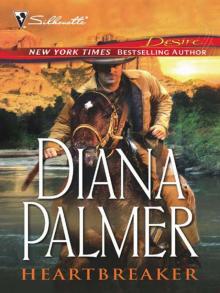 Heartbreaker
Heartbreaker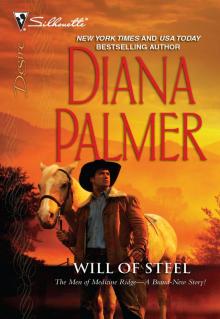 Will of Steel
Will of Steel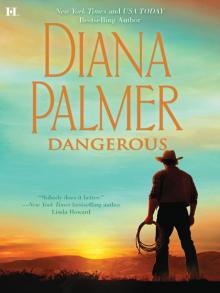 Dangerous
Dangerous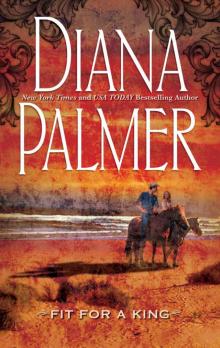 Fit for a King
Fit for a King Diamond in the Rough
Diamond in the Rough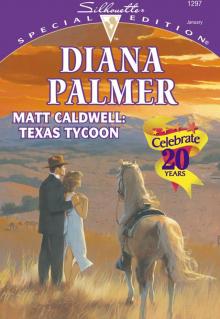 Matt Caldwell: Texas Tycoon
Matt Caldwell: Texas Tycoon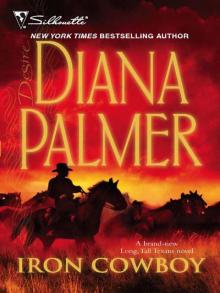 Iron Cowboy
Iron Cowboy Fire And Ice
Fire And Ice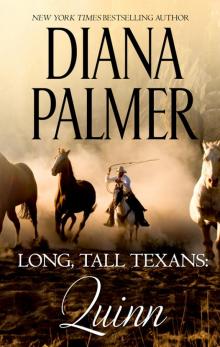 Long, Tall Texans--Quinn--A Single Dad Western Romance
Long, Tall Texans--Quinn--A Single Dad Western Romance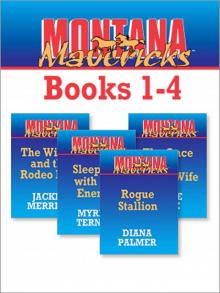 Montana Mavericks, Books 1-4
Montana Mavericks, Books 1-4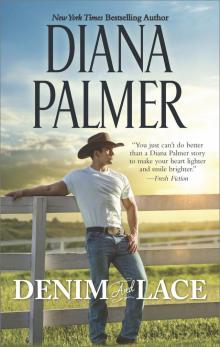 Denim and Lace
Denim and Lace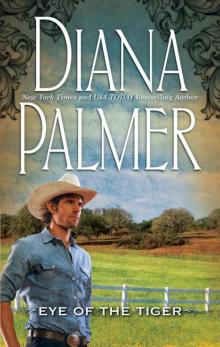 Eye of the Tiger
Eye of the Tiger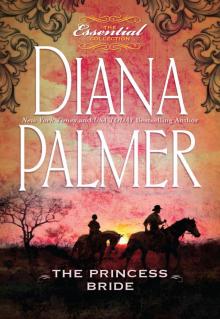 The Princess Bride
The Princess Bride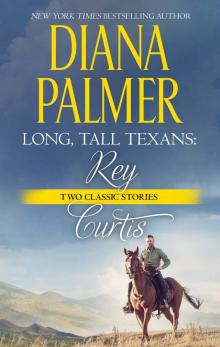 Long, Tall Texans: Rey ; Long, Tall Texans: Curtis ; A Man of Means ; Garden Cop
Long, Tall Texans: Rey ; Long, Tall Texans: Curtis ; A Man of Means ; Garden Cop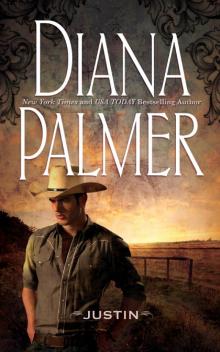 Justin
Justin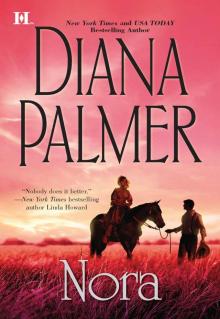 Nora
Nora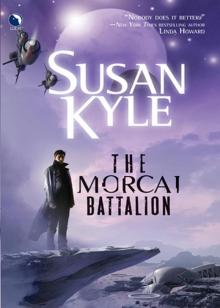 The Morcai Battalion
The Morcai Battalion Heart of Stone
Heart of Stone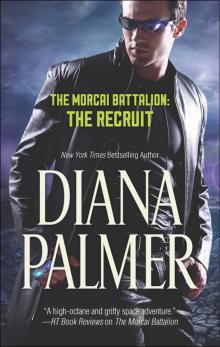 The Morcai Battalion: The Recruit
The Morcai Battalion: The Recruit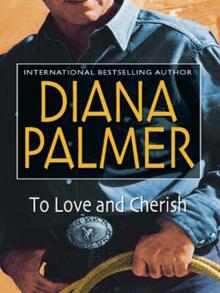 To Love and Cherish
To Love and Cherish Invictus
Invictus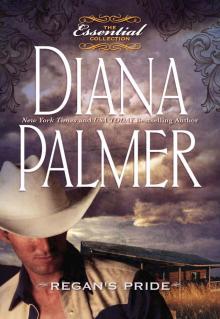 Regan's Pride
Regan's Pride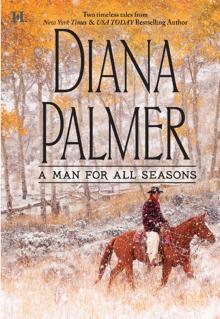 A Man for All Seasons
A Man for All Seasons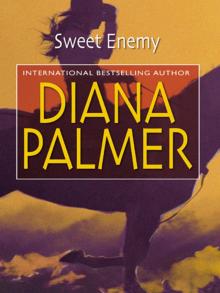 Sweet Enemy
Sweet Enemy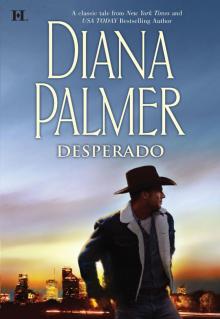 Desperado
Desperado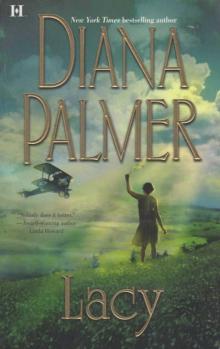 Lacy
Lacy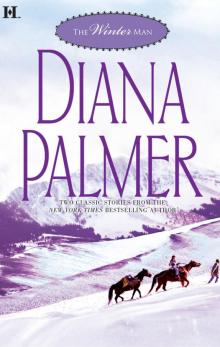 The Winter Man
The Winter Man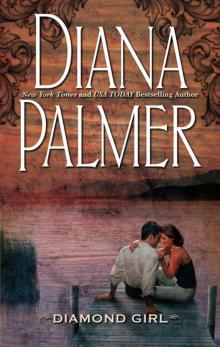 Diamond Girl
Diamond Girl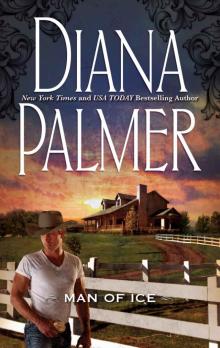 Man of Ice
Man of Ice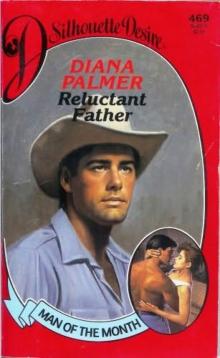 Reluctant Father
Reluctant Father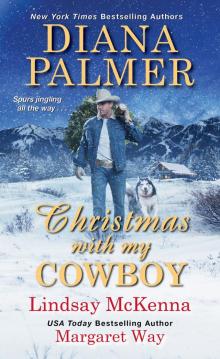 Christmas with My Cowboy
Christmas with My Cowboy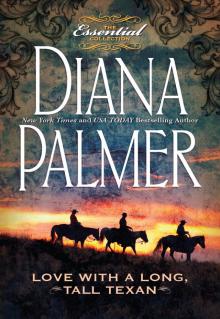 Love with a Long, Tall Texan
Love with a Long, Tall Texan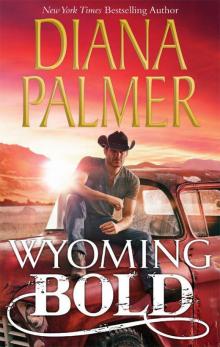 Wyoming Bold wm-3
Wyoming Bold wm-3 King's Ransom
King's Ransom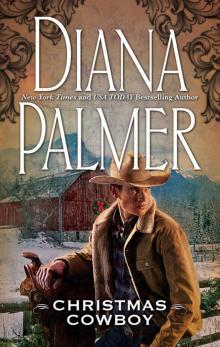 Christmas Cowboy
Christmas Cowboy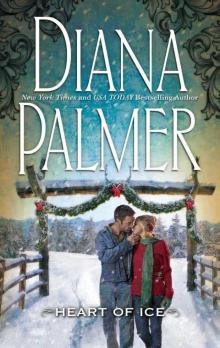 Heart of Ice
Heart of Ice Fearless
Fearless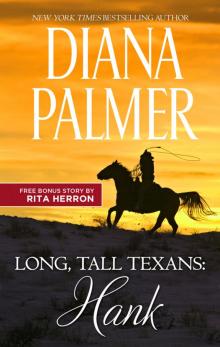 Long, Tall Texans_Hank
Long, Tall Texans_Hank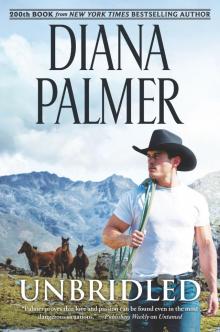 Unbridled
Unbridled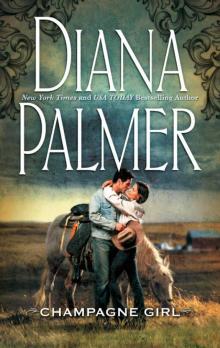 Champagne Girl
Champagne Girl The Greatest Gift
The Greatest Gift Storm Over the Lake
Storm Over the Lake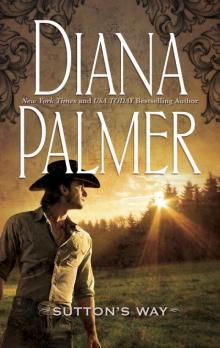 Sutton's Way
Sutton's Way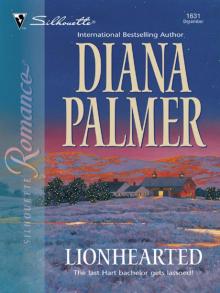 Lionhearted
Lionhearted Renegade
Renegade Betrayed by Love
Betrayed by Love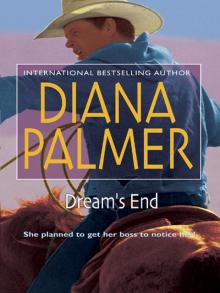 Dream's End
Dream's End All That Glitters
All That Glitters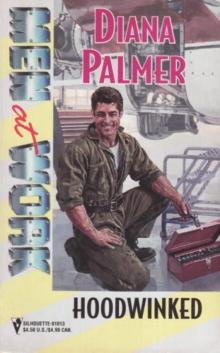 Hoodwinked
Hoodwinked Soldier of Fortune
Soldier of Fortune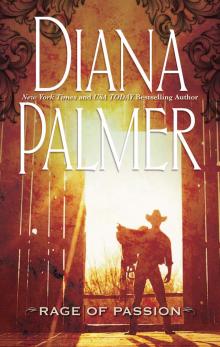 Rage of Passion
Rage of Passion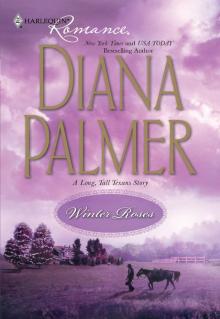 Winter Roses
Winter Roses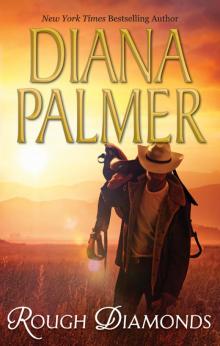 Rough Diamonds: Wyoming ToughDiamond in the Rough
Rough Diamonds: Wyoming ToughDiamond in the Rough Protector
Protector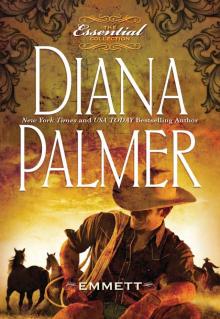 Emmett
Emmett True Blue
True Blue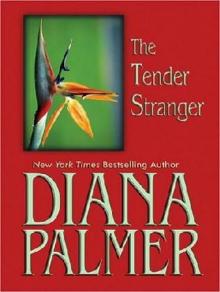 The Tender Stranger
The Tender Stranger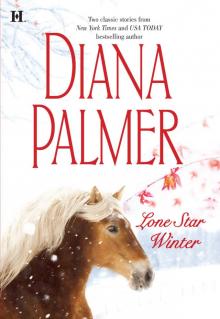 Lone Star Winter
Lone Star Winter Man in Control
Man in Control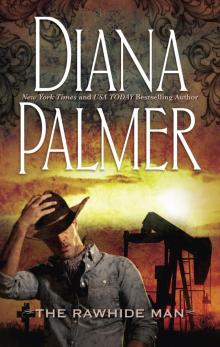 The Rawhide Man
The Rawhide Man Untamed
Untamed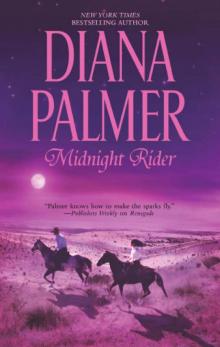 Midnight Rider
Midnight Rider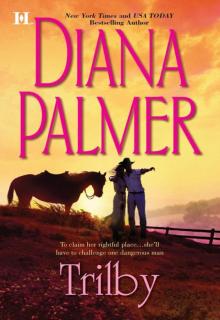 Trilby
Trilby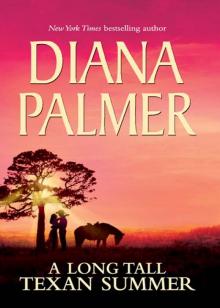 A Long Tall Texan Summer
A Long Tall Texan Summer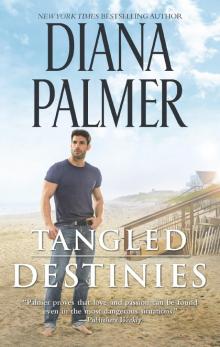 Tangled Destinies
Tangled Destinies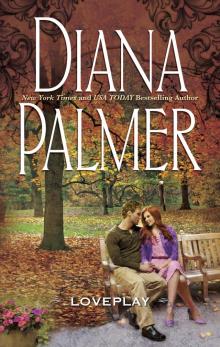 LovePlay
LovePlay Blind Promises
Blind Promises Carrera's Bride
Carrera's Bride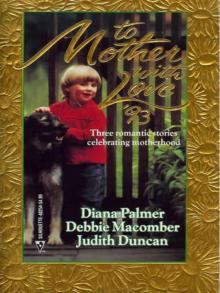 Calamity Mum
Calamity Mum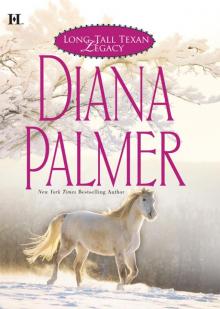 Long, Tall Texan Legacy
Long, Tall Texan Legacy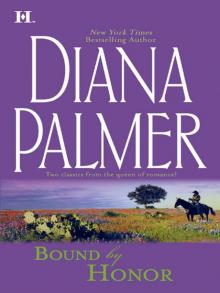 Bound by Honor
Bound by Honor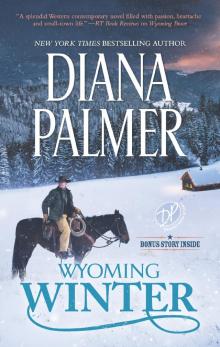 Wyoming Winter--A Small-Town Christmas Romance
Wyoming Winter--A Small-Town Christmas Romance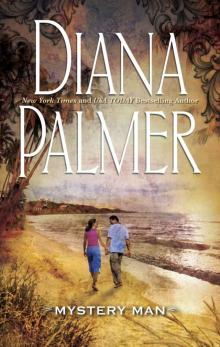 Mystery Man
Mystery Man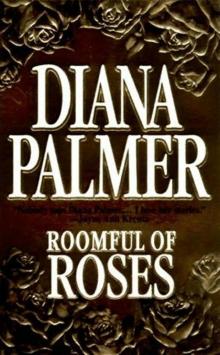 Roomful of Roses
Roomful of Roses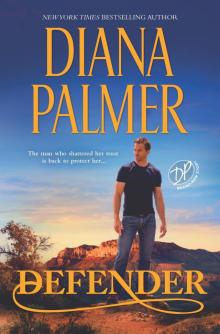 Defender
Defender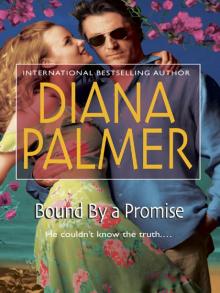 Bound by a Promise
Bound by a Promise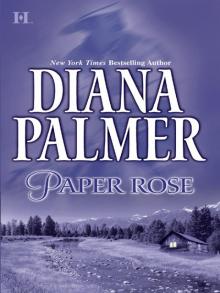 Paper Rose
Paper Rose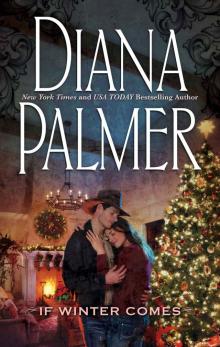 If Winter Comes
If Winter Comes Circle of Gold
Circle of Gold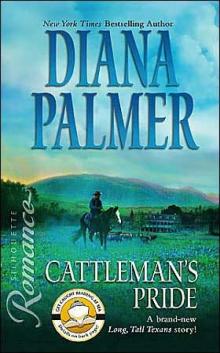 Cattleman's Pride
Cattleman's Pride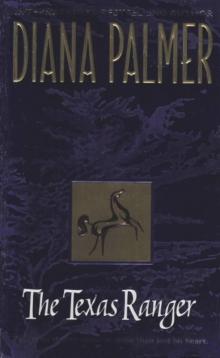 The Texas Ranger
The Texas Ranger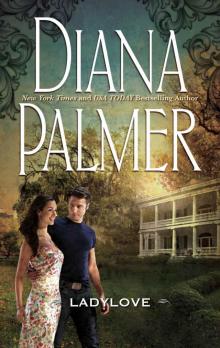 Lady Love
Lady Love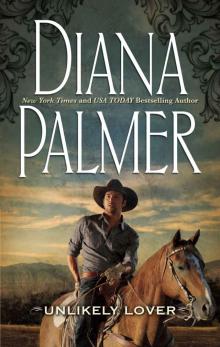 Unlikely Lover
Unlikely Lover A Man of Means
A Man of Means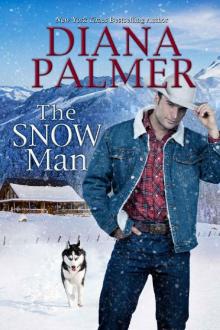 The Snow Man
The Snow Man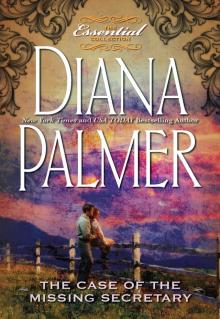 The Case of the Missing Secretary
The Case of the Missing Secretary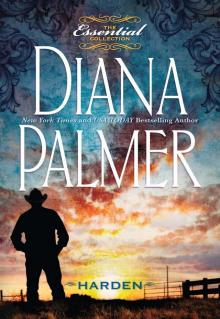 Harden
Harden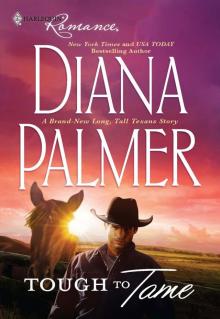 Tough to Tame
Tough to Tame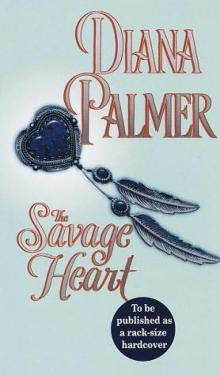 The Savage Heart
The Savage Heart